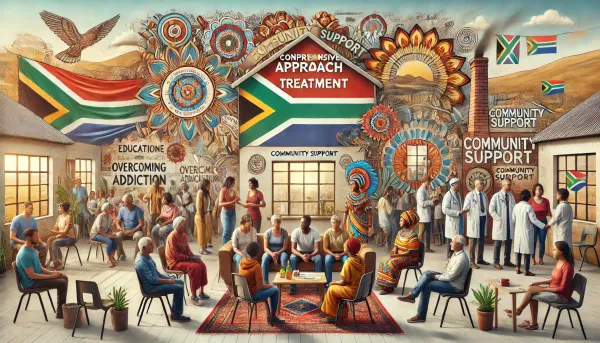The Imperative of a Whole-Government Approach to Building a Future of Certainty: Creating a Ministry of Children

A whole-government approach to building a future of certainty acknowledges that children's long-term well-being is shaped by more than just healthcare. Social determinants such as education, housing, economic stability, and emotional support all play critical roles in a child’s development. By establishing a Ministry of Children, governments can ensure that every sector works cohesively to address the diverse needs of children, from birth through adolescence, building a future where society thrives through its youngest members.
The Case for a Ministry of Children
- Children as the Foundation for Society’s Future: Children are the bedrock of any society's future prosperity and stability. They are more than beneficiaries of the present system—they are the future decision-makers, innovators, and leaders. Investing in children today ensures a skilled, healthy, and socially stable population tomorrow. Prioritizing their development creates a foundation for long-term societal strength, and economic resilience.
- A Holistic Approach to Child Development: Children’s well-being is not solely determined by healthcare. They require access to quality education, secure housing, emotional support, and stable social environments. A Ministry of Children would guarantee a comprehensive approach to policy-making, ensuring that these areas are interconnected, and that children receive the support needed to thrive in all aspects of life, including mental, social, and cognitive growth.
- Early Intervention and Lifelong Impact: Early intervention in education, nutrition, and family support can prevent many problems that surface later in life, from poor health outcomes to diminished social mobility. Investing in early childhood development ensures that children enter adulthood with better opportunities, reducing social burdens such as unemployment and criminal activity. This early investment yields a high return by building citizens who contribute positively to society.
- Addressing Inequality at its Roots: Economic inequality, educational disparity, and social inequities are pervasive issues that limit children's opportunities. A Ministry of Children would focus on closing these gaps, ensuring that every child—regardless of background—has access to the tools they need to succeed. This proactive approach reduces the likelihood of generational poverty and promotes social mobility, fostering a more equitable society.
- Preparing for Future Challenges: The world is rapidly changing due to technological advancements, climate change, and shifting economic landscapes. The Ministry of Children could play a vital role in preparing the next generation for these future uncertainties by ensuring they have the education, problem-solving skills, and emotional resilience needed to navigate a complex world. Equipping children with these tools ensures a society that can adapt and thrive amidst change.
The Role of the Ministry of Children in Securing the Future
The Ministry of Children would act as the nexus where various government sectors collaborate to ensure that children are prepared to face the challenges and opportunities of the future. It would focus on areas including:
Education: Promoting access to high-quality early childhood education, addressing learning disparities, and ensuring that children have the skills needed for a digital and global economy.
Economic Stability and Family Support: Providing families with financial support, housing stability, and access to affordable childcare. Ensuring that economic hardships do not hinder a child’s development or educational opportunities.
Social and Emotional Well-being: Ensuring that children grow up in safe environments, with access to mental health services and programs that nurture emotional resilience. Addressing bullying, trauma, and family instability can have long-term benefits for society.
Protection and Advocacy: Safeguarding children from abuse, neglect, exploitation, and violence through coordinated welfare systems and legal frameworks. A Ministry of Children could champion the rights of children, making their well-being a national priority.
Building a Future of Certainty
- Collaborative Governance for Children’s Well-being: To build a future of certainty, a Ministry of Children would promote cross-sector collaboration, ensuring that policies in education, housing, healthcare, and social welfare are aligned. This would avoid fragmented approaches, and ensure that all policies work together to support children comprehensively.
- Budgetary Investments Yield Future Gains: Although establishing and maintaining a Ministry of Children requires substantial financial resources, the long-term benefits far outweigh the costs. Investing in education, early childhood intervention, and family support can reduce future government spending on healthcare, social services, and corrections. A focus on children offers an economically sound strategy for long-term prosperity.
- Securing Political and Public Commitment: Public awareness of the critical role children play in securing a future of certainty can drive political will. Mobilizing support from educators, healthcare professionals, businesses, and civil society organizations ensures that child well-being remains at the forefront of national priorities. Ensuring that children are seen as a national resource that deserves investment would foster widespread societal support.
Overcoming Implementation Challenges
- Breaking Down Silos in Government: One challenge in establishing a Ministry of Children would be integrating policies across various sectors. This can be resolved by creating interagency task forces that work toward unified goals centered on child well-being. Collaborative frameworks and data-sharing between departments would ensure that no aspect of a child's development is overlooked.
- Ensuring Equitable Distribution of Resources: Another challenge would be ensuring that all children, especially those in marginalized communities, benefit from the ministry’s initiatives. A focus on equity, with targeted policies for disadvantaged groups, would be essential in creating truly inclusive systems that close opportunity gaps.
- Ensuring Long-Term Commitment: The success of a Ministry of Children would depend on sustained political commitment across electoral cycles. Building a future of certainty requires that child-centered policies remain a top priority in both the short and long term. This would involve embedding child well-being as a non-negotiable element of national policy.
Conclusion
The creation of a Ministry of Children represents a transformative approach to building a future of certainty. Recognizing that children are the key to societal well-being, economic growth, and long-term stability, such a ministry would ensure that every sector of government works in concert to support the holistic development of children. By investing in children today, we can build a future where health, education, economic security, and social stability are within reach for all members of society, securing a prosperous and resilient tomorrow.



